#concrete epoxy adhesive
Explore tagged Tumblr posts
Text
Addressing the Toughest Surface Damage Problems
Traditional repair methods are often not preferable when tackling significant surface wear and tear. These repairs, whether made by friction, impacts or corrosive elements, can be the reason for the failure of critical structures. Finding an advanced solution is important to deal with these extreme issues. High-performance repair options are essential to restore and maintain the durability of affected areas, and choosing the best epoxy manufacturer for this is crucial for achieving optimal results. Metal-filled epoxies are a strong solution to such problems and enhance the surface resilience to optimum.
Addressing Cracks
Cracks in any surface can become the source of the most severe structural problems that directly influence the functionality and safety of the structure. Conventional patching methods usually do not give the required long-lasting result, especially in high-stress environments. Metal-filled epoxies, particularly metal patch and fill compound, offer a high-tech solution by creating a durable bond that effectively fills and seals cracks. Their composition guarantees that the repaired area will be able to bear the expected load and, thus, will not lose its strength over time.
Combating Corrosion
Corrosion can damage any metal surface by gradual degradation that may lead to its failure. Even in such cases, conventional coatings or treatments cannot adequately resist the continued corrosive attacks. In such cases, metal-filled epoxies are an effective solution that offers an efficient barrier against corrosive agents. Their advanced properties contribute to avoiding further damage and maintaining the full structural integrity of the metal component. By applying these epoxies, one can achieve a long-lasting shield against corrosion, extending the lifespan of critical assets.
Repairing Broken Parts
If the broken parts are not repaired correctly, they lead to costly downtime and disrupt operations. Most repair methods will fail to return these components to their original strength and functionality, does not prove reliable in such cases, and also will not restore durability. Metal-filled epoxies' ability to bond strongly with the damaged surfaces ensures an advanced repair that can handle the stresses much more effectively. This approach not only regains the part's functionality but also prevents future damage, providing a more reliable and durable solution.
About ITW Performance Polymers
ITW Performance Polymers specializes in advanced epoxy solutions, providing top-tier concrete epoxy adhesive, among other high-performance products. Their innovative technologies ensure exceptional durability and effectiveness in every application.
For more details, visit https://itwperformancepolymers.com/
Original Source: https://bit.ly/4dybYcQ
0 notes
Text
Epoxy Resin Grouting Glue Specializes in Treating Concrete Cracks
Do you know what epoxy grouting glue is? It is a resin glue specially designed for repairing concrete cracks. Epoxy resin grouting glue can easily solve the fine cracks in concrete, whether it is walls, floors, floors, or columns, it can be repaired. It also has the advantages of low viscosity, low tension, and strong penetration, and can achieve traceless surface repair.
Everyone knows that in the modern construction industry, concrete, as a major building material, is widely used in various projects. However, due to various factors such as construction, environment, and materials, concrete cracks occur from time to time, seriously affecting the integrity and safety of the structure.
In order to solve this problem, professional epoxy resin grouting glue emerged at the historic moment and became the first choice material for concrete crack repair. This article will introduce in detail the characteristics of epoxy resin grouting glue, crack repair principles, and crack treatment processes.
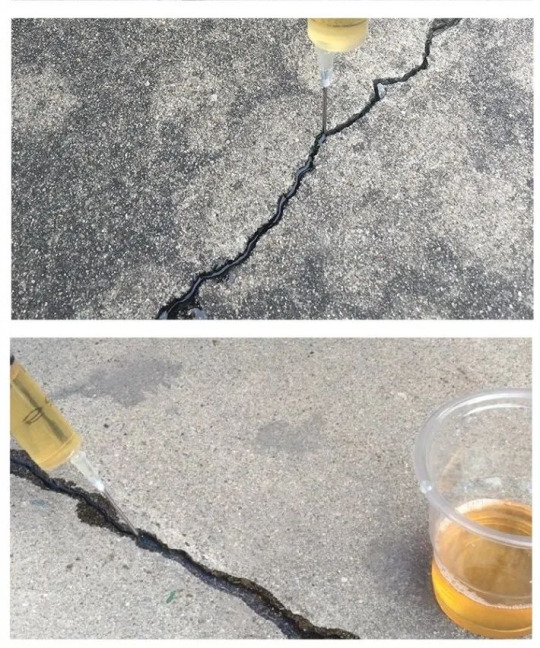
Crack repair principle of epoxy resin grouting glue
When cracks appear in concrete, traditional repair methods often simply treat the surface and ignore the problems deep within the cracks. Epoxy resin grouting glue adopts a more thorough repair strategy.
The crack repair principle of epoxy resin grouting glue is mainly based on its high permeability and self-filling ability. The following is the detailed repair principle:
High permeability: Epoxy resin grouting glue has excellent high permeability. When colloid is injected into a crack, it will quickly penetrate into the bottom of the crack and into the tiny gaps, ensuring that every inch of the crack is nourished by the colloid.
Self-filling ability: Due to the low viscosity and high fluidity of epoxy resin grouting glue, it will automatically fill every corner of the crack, no matter how subtle or complex the crack is.
Repair and reinforcement: When the epoxy resin grouting glue penetrates and fills the bottom of the crack, it will start the curing process. The cured epoxy resin has extremely high strength and adhesiveness, and can effectively bond the concrete on both sides of the crack firmly together to form a whole. This kind of repair method not only treats the surface, but also strengthens the entire matrix, thereby restoring and enhancing the overall strength and stability of the concrete structure.
The crack repair principle of epoxy resin grouting glue is to use its high permeability and automatic filling ability to penetrate deep into the bottom of the crack to perform all-round repair and reinforcement. This method of repair ensures the integrity and safety of the concrete structure, providing a long-lasting, effective solution.
Six major characteristics of epoxy resin grouting glue
1. Low viscosity:
Epoxy grouting glue has a lower viscosity, which allows it to be injected into the crack more smoothly during the construction process, ensuring that every part of the crack can be fully filled. Low viscosity also helps improve application efficiency and reduce application time.
2. High intensity:
Once cured, epoxy grouts provide extremely strong bonds. It can firmly bond both sides of concrete cracks, ensuring that the repaired structure can withstand larger loads and restore its original strength.
3. High fluidity:
The high flowability of epoxy grout means it can flow freely in cracks and penetrate every corner, ensuring complete filling without bubbles or hollows. This feature ensures complete repair of cracks, reducing the likelihood of recurrence.
4. No shrinkage when cured:
Unlike other repair materials, epoxy grout virtually does not shrink during the curing process. This feature ensures that the repaired surface remains flat and does not cause new cracks or deformation due to shrinkage.
5. Widely used:
Epoxy resin grouting adhesive has a wide range of applicability and can be used to repair concrete cracks of various types and sizes. Whether it is a bridge, road, building or other concrete structure, it can be repaired using this glue.
6. Simple construction:
The construction of epoxy resin grouting glue is relatively simple. You only need to mix components A and B according to the proportion, and then use a special tool to inject into the crack. Its simple construction process allows even non-professionals to carry out restoration work.
In summary, these six characteristics of epoxy resin grouting glue make it the first choice material for concrete crack repair. Whether it is a civil building or a large infrastructure, it can provide excellent performance and ensure structural integrity and safety.
How to use epoxy resin grouting glue
Step 1: Clean the cracks
First, use a brush to clean the crack and the debris around it to ensure that the inside of the crack is dry and free of impurities.
Step 2: Simple glue adjustment
Mix according to the proportion requirements and use after stirring evenly. It is recommended to deploy according to actual needs to avoid material waste.
Step 3: Colloidal injection
Inject the mixed colloid into the cracks of the concrete in batches until the cracks are completely filled.
Step 4: Wait for curing
After the injection is completed, sprinkle quartz sand and other materials on the surface of the colloid and wait for the colloid to completely solidify. Once cured, sanding can be easily carried out.
More information or free samples or price quotations, please contact us via email: [email protected] , or voice to us at: +86-28-8411-1861.
#epoxy resin#epoxy resin manufacturer#bisphenol a type epoxy resin#epoxy resin supplier#epoxy adhesive#grouting glue#epoxy grouting glue#concrete crack treatment#epoxy resin grouting glue
1 note
·
View note
Text

AplicaCer PU FLEX: Superior Tile Adhesion Marvel!
Elevate your tiling with AplicaCer PU FLEX! A Polyurethane adhesive for interior & exterior surfaces, it boasts a Super Chemical Bond, ensuring tiles stay put on any substrate. Ideal for challenging surfaces like dry walls, metal, wood, and more, it's your versatile problem-solver. It's a Sensitive Stone Guardian, preserving marbles' integrity. Come rain or shine, it excels, thriving in dry, wet, or submerged conditions. From ceilings to floors, AplicaCer PU FLEX exceeds EN and IS standards, redefining excellence in every bond. Transform your tiling experience with the best – AplicaCer PU FLEX! To know more about natural tile stone adhesive in India and polyurethane adhesive for fixing tiles and stones visit: https://capaindia.in/
#tile adhesive companies in india#top tile adhesive brands in india#top building materials companies in india#best tile adhesive in india#tile adhesives for fixing natural stones#high strength flooring mortars#tile adhesive manufacturers#tile adhesives for vitrified tiles#block jointing mortar manufacturers in india#floor repairs mortars in india#polyurethane adhesive for fixing tiles and stones#natural tile stone adhesive in India#best concrete flooring solutions in India#best grouting solutions for tiles#aliphatic polyurethane waterproofing coating#epoxy adhesives manufacturers#affordable waterproofing solutions#tile powder premium grouting solutions#tile adhesive manufacturers in india
0 notes
Text
Can epoxy paint be applied on a cement-based tile adhesive?
Epoxy paint can be applied on a cement-based tile adhesive, but it's important to prepare the surface properly before application to ensure a strong and lasting bond. Here are the steps you can follow:
Clean the surface: Use a degreaser and a stiff bristle brush to remove any dirt, grime, and debris from the surface of the tile adhesive. Rinse the surface with clean water and allow it to dry completely.
Sand the surface: Use a sanding block or a floor buffer with a sanding disc to rough up the surface of the tile adhesive. This will help the epoxy paint adhere better. Make sure to remove any dust or debris after sanding.
Apply a primer: Apply a high-quality primer designed for use with epoxy paint to the surface of the tile adhesive. This will help the epoxy paint bond better and provide better coverage. Allow the primer to dry completely before proceeding.
Read the full answer by Koffclub on Quora by clicking the link below:
0 notes
Text
EPOXYSHİNE - DRAGON+ (3)
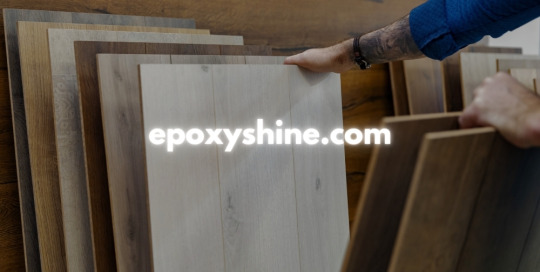
Epoxy floor coating is not just a practical choice for enhancing the durability of your flooring; it's also a stylish solution that can transform any space. Whether you're a homeowner looking to revamp your garage or a business owner seeking reliable commercial flooring solutions, understanding the benefits of epoxy will help you make informed decisions. As you search for "floor polishing near me," consider how an expertly applied epoxy coating can elevate your interiors while providing a long-lasting finish.
Epoxy Floor Coating
Epoxy floor coating is a highly durable and resilient flooring solution that has gained popularity in both residential and commercial spaces. This type of coating is made from a combination of resin and hardener, creating a strong bond when applied to existing concrete surfaces. The result is a seamless surface that can withstand heavy foot traffic, chemicals, and abrasions.
One of the major benefits of epoxy floor coating is its versatility. It can be customized in various colors and finishes, including high-gloss and matte textures. This means that property owners can choose a look that complements their interior design while still providing the durability they require. Additionally, the smooth finish of epoxy makes it easy to clean and maintain, which is particularly advantageous in commercial settings.
Furthermore, the installation process for epoxy floor coating is relatively quick, often completed within a few days. However, it’s essential to hire professionals who have the expertise and equipment to ensure a flawless application. The right team will properly prepare the surface, allowing for optimal adhesion and longevity of the coating.
Floor Polishing Near Me
When searching for floor polishing near me, it's essential to find a service that not only meets your expectations but also understands the unique needs of your flooring. Professional floor polishing can revitalize old surfaces, restoring their shine and luster while protecting them from future wear and tear.
Many local companies offer specialized services in floor polishing that cater to various materials, including hardwood, tile, and concrete. A quick search in your area will yield numerous options, allowing you to compare prices, services, and customer reviews to find the best fit for your needs.
Additionally, hiring professionals for floor polishing ensures that the job is done correctly and efficiently. They use advanced equipment and high-quality products that not only enhance the appearance of your floors but also extend their lifespan. So, don't hesitate to reac
Commercial Flooring Solutions
Commercial flooring solutions are essential for businesses seeking to enhance their aesthetic appeal while also ensuring durability and functionality. The choice of flooring can greatly influence the overall atmosphere of a commercial space, leading to improved employee morale and customer satisfaction.
Among the various options available, epoxy floor coatings stand out due to their seamless finish and resistance to heavy foot traffic. These coatings not only provide a sleek look but also protect the underlying surface from wear and tear, making them ideal for warehouses, retail spaces, and industrial environments.
Moreover, businesses often explore additional options such as vinyl flooring, carpet tiles, and laminate surfaces to meet specific needs. Each of these materials offers unique advantages, allowing business owners to choose the most suitable flooring solution that aligns with their operational demands and aesthetic preferences.
Metallic Epoxy Floor
A metallic epoxy floor offers a stunning visual appeal that enhances the aesthetic of any space. The reflective properties of the metallic pigments create a unique look, resulting in a three-dimensional effect that can mimic a variety of surfaces, such as water, marble, or even molten metal. This type of flooring is especially popular in modern homes, showrooms, and commercial spaces, providing an eye-catching yet durable surface.
One of the significant advantages of a metallic epoxy floor is its durability. This flooring solution is resistant to stains, chemicals, and impacts, making it ideal for high-traffic areas. Additionally, it is easy to clean and maintain, which means that business owners and homeowners can save time and resources. The seamless nature of epoxy flooring also contributes to a hygienic environment, especially in spaces like hospitals or laboratories.
Installing a metallic epoxy floor can be a customized process, allowing property owners to choose their preferred colors and patterns. Whether you’re looking for a sleek, industrial look or a vibrant, artistic finish, this flooring solution can be tailored to meet your unique vision. By consulting with professionals, you can ensure that your metallic epoxy floor is installed correctly and maximizes its longevity and beauty.
598 notes
·
View notes
Text

Case Study: Big Dig Ceiling Collapse
The Big Dig project was a planned highway reroute in Boston, USA, which began planning in 1982, began construction in 1991, and concluded construction in 2007. It is considered to be one of the most costly highway projects in the United States. In 2006, a concrete ceiling panel in the Fort Point Channel Tunnel section of the project collapsed onto a car, killing one and injuring another. The ultimate cause of the collapse was found to be creep failure from where anchors were embedded in epoxy and a failure to account for the need of a creep resistant adhesive. At the conclusion of the investigation, the NTSB recommended the formation of new standards for the testing of adhesive anchors.
Sources/Further Reading: (Image source - Wikipedia) (The Constructor) (NTSB) (Design News)
18 notes
·
View notes
Text
Ready to bond smarter? Visit us today to learn more and experience the adhesive revolution! Mr. JO Tecbond ASG
Mr. JO Tecbond - ASG: Smarter Adhesives for Stronger Bonds
Why settle for ordinary adhesives when you can experience extraordinary performance? Mr. JO Tecbond - ASG is the ultimate epoxy adhesive that combines strength, speed, and versatility at an unbeatable price.
Why Choose Mr. JO Tecbond - ASG?
✅ Stronger Bonds
Effortlessly adheres to stone, metal, and concrete, ensuring unmatched reliability.
✅ Fast Curing
Achieve results quickly, saving time on every project.
✅ Multipurpose
Perfect for crafting, repairs, and industrial applications alike.
✅ Solvent-Free Formula
Safe for you and the environment while delivering powerful results.
✅ Durable Results
Engineered to withstand the test of time across multiple surfaces.
Built for Makers and Trusted by Professionals !
Whether you’re a craftsman, artisan, or industrial expert, Mr. JO Tecbond - ASG is the adhesive you can count on:
- 🎨 Handicrafts: Precision and permanence for every masterpiece.
- ⚒️ Repairs: Reliable performance for tough fixes.
- 🏏Sports Goods: Tough bonds that endure the game.
Affordable Excellence
Mr. JO Tecbond - ASG delivers premium quality at just a fraction of the cost of other adhesives. It’s the smart choice for creating, repairing, and innovating.
"🔗 Stronger Bonds, Smarter Choices.
Meet Mr. JO Tecbond - ASG, the fast-curing, durable epoxy adhesive perfect for stone, metal, and concrete. Safer, versatile, and affordable!
👉 Explore Our Products: [www.jpoxypolymers.com/product/mr-jo-tecbond-asg]
Mr. JO Tecbond - ASG
2 notes
·
View notes
Text
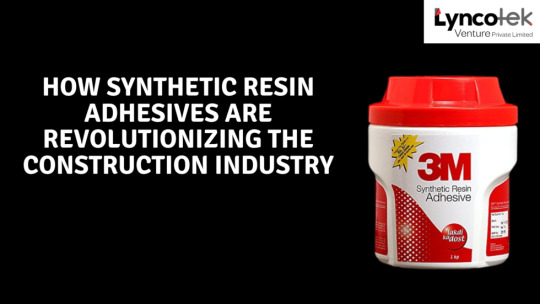
Introduction to Synthetic Resin Adhesives
The building business was completely transformed by the introduction of Synthetic Resin Adhesives. These adhesives are effective in packing, long-lasting, and multipurpose. They consist of several chemicals. These days, resin-based products are a necessary part of modern manufacturing and may be found in everything from high-end to bulky packaging.
Types of Synthetic Resin Adhesives
Epoxy Resin Adhesives
Epoxy resin adhesives are renowned for having outstanding bond strength and resilience to abrasive environments. Applications needing strong adhesion and structural stability, such joined concrete, metal, and plastic, frequently employ it.
Polyurethane Adhesives
Because polyurethane adhesive is so strong and flexible, it’s perfect for packaging that comes in different widths. It is used in construction for joint coverings and wood fastening to various components.
Acrylic Adhesives
Acrylic adhesives are frequently used in construction to assemble furniture, affix decorative panels, and make windows. They are prized for their quick speed and strong adherence to a variety of materials, including metal, glass, and ceramics.
Cyanoacrylate Adhesives
Super glue, or cyanoacrylate adhesives, are thought to be advantageous due to its quick cure and great resilience. In construction, it is widely used to bind small pieces, repair cracks, and fuse soft materials together.

Properties of Synthetic Resin Adhesives
Resin-based adhesives exhibit several key characteristics that make them ideally suited for construction applications.
Strength
One of the number one blessings of artificial resin adhesives is their exquisite bonding strength, which allows them to create robust connections among numerous materials.
Durability
Synthetic resin adhesives are recognized for their sturdiness, resisting degradation from exposure to moisture, chemical compounds, and environmental elements over time.
Flexibility
Many synthetic resin adhesives offer flexibility, permitting them to resist the stresses of motion and vibration with out dropping their bond energy.
Resistance to Moisture and Chemicals
It is common for synthetic resin adhesives to be designed to withstand chemical exposure and moisture, which qualifies them for usage in outdoor and industrial settings.
Applications in the Construction Industry
Synthetic resin adhesives locate several packages in the construction industry, ranging from bonding materials to structural repairs.
Bonding Materials
Synthetic resin adhesives are used to bond a wide variety of substances, together with timber, metal, concrete, and plastic, permitting the construction of long lasting and resilient systems.
Structural Repairs
In cases in which traditional creation techniques are impractical or costly, artificial resin adhesives can be used to restore and toughen current systems quick and efficaciously.

Flooring Installation
Synthetic resin adhesives are typically used in floors set up, imparting a robust and dependable bond between the floors material and the substrate.

Wall Paneling
Synthetic resin adhesives are used to connect wall panels and decorative factors, supplying a steady and aesthetically pleasing end to indoors areas.

Advantages of Synthetic Resin Adhesives
In many production processes, synthetic resin adhesives are the favored choice due to their numerous advantages over traditional bonding methods.
Fast Curing Time
Synthetic resin adhesives usually have a fast curing time, bearing in mind rapid assembly and set up of production additives.
High Strength
Synthetic resin adhesives provide high bond electricity, making sure the structural integrity and sturdiness of constructed factors.
Versatility
Synthetic resin adhesives can bond a wide variety of materials together, imparting versatility and versatility in creation initiatives.
Resistance to Environmental Factors
Synthetic resin adhesives are resistant to moisture, chemicals, and other environmental factors, making them suitable for use in diverse climatic conditions.
Real-Life Applications
Several case studies highlight the effectiveness and flexibility of synthetic resin adhesives in production tasks international.
Challenges and Limitations
Despite their many advantages, artificial resin adhesives additionally face demanding situations and limitations, such as restricted temperature tolerance and capacity health risks in the course of software.
Future Trends and Innovations
The destiny of artificial resin adhesives in the construction enterprise looks promising, with ongoing research and improvement targeted on improving their overall performance, sustainability, and safety.
Conclusion
In conclusion, synthetic resin adhesives have revolutionized the development enterprise by way of supplying superior bonding energy, durability, and versatility. From bonding materials to structural maintenance, those adhesives play a crucial role in cutting-edge creation practices, paving the manner for innovative and sustainable constructing solutions.
Unique FAQs
Are synthetic resin adhesives suitable for outdoor applications?
How do synthetic resin adhesives compare to traditional adhesives?
What safety precautions should be taken when using synthetic resin adhesives?
Can synthetic resin adhesives be used underwater?
Are there eco-friendly alternatives to synthetic resin adhesives?
#synthetic resin adhesives#construction adhesives#acrylic adhesive#industrial adhesives#flooring installation#adhesive properties#durability#polyurethane adhesive
2 notes
·
View notes
Text
How Synthetic Resin Adhesives Are Revolutionizing the Construction Industry
Introduction to Synthetic Resin Adhesives
The building business was completely transformed by the introduction of Synthetic Resin Adhesives. These adhesives are effective in packing, long-lasting, and multipurpose. They consist of several chemicals. These days, resin-based products are a necessary part of modern manufacturing and may be found in everything from high-end to bulky packaging.
Types of Synthetic Resin Adhesives
Epoxy Resin Adhesives
Epoxy resin adhesives are renowned for having outstanding bond strength and resilience to abrasive environments. Applications needing strong adhesion and structural stability, such joined concrete, metal, and plastic, frequently employ it.
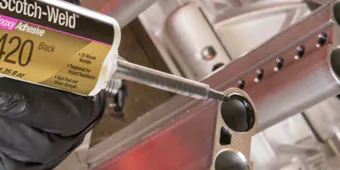
Polyurethane Adhesives
Because polyurethane adhesive is so strong and flexible, it’s perfect for packaging that comes in different widths. It is used in construction for joint coverings and wood fastening to various components.

Acrylic Adhesives
Acrylic adhesives are frequently used in construction to assemble furniture, affix decorative panels, and make windows. They are prized for their quick speed and strong adherence to a variety of materials, including metal, glass, and ceramics.
Cyanoacrylate Adhesives
Super glue, or cyanoacrylate adhesives, are thought to be advantageous due to its quick cure and great resilience. In construction, it is widely used to bind small pieces, repair cracks, and fuse soft materials together.

Properties of Synthetic Resin Adhesives
Resin-based adhesives exhibit several key characteristics that make them ideally suited for construction applications.
Strength
One of the number one blessings of artificial resin adhesives is their exquisite bonding strength, which allows them to create robust connections among numerous materials.
Durability
Synthetic resin adhesives are recognized for their sturdiness, resisting degradation from exposure to moisture, chemical compounds, and environmental elements over time.
Flexibility
Many synthetic resin adhesives offer flexibility, permitting them to resist the stresses of motion and vibration with out dropping their bond energy.
Resistance to Moisture and Chemicals
It is common for synthetic resin adhesives to be designed to withstand chemical exposure and moisture, which qualifies them for usage in outdoor and industrial settings.
Applications in the Construction Industry
Synthetic resin adhesives locate several packages in the construction industry, ranging from bonding materials to structural repairs.
Bonding Materials
Synthetic resin adhesives are used to bond a wide variety of substances, together with timber, metal, concrete, and plastic, permitting the construction of long lasting and resilient systems.
Structural Repairs
In cases in which traditional creation techniques are impractical or costly, artificial resin adhesives can be used to restore and toughen current systems quick and efficaciously.

Flooring Installation
Synthetic resin adhesives are typically used in floors set up, imparting a robust and dependable bond between the floors material and the substrate.

Wall Paneling
Synthetic resin adhesives are used to connect wall panels and decorative factors, supplying a steady and aesthetically pleasing end to indoors areas.

Advantages of Synthetic Resin Adhesives
In many production processes, synthetic resin adhesives are the favored choice due to their numerous advantages over traditional bonding methods.
Fast Curing Time
Synthetic resin adhesives usually have a fast curing time, bearing in mind rapid assembly and set up of production additives.
High Strength
Synthetic resin adhesives provide high bond electricity, making sure the structural integrity and sturdiness of constructed factors.
Versatility
Synthetic resin adhesives can bond a wide variety of materials together, imparting versatility and versatility in creation initiatives.
Resistance to Environmental Factors
Synthetic resin adhesives are resistant to moisture, chemicals, and other environmental factors, making them suitable for use in diverse climatic conditions.
Real-Life Applications
Several case studies highlight the effectiveness and flexibility of synthetic resin adhesives in production tasks international.
Challenges and Limitations
Despite their many advantages, artificial resin adhesives additionally face demanding situations and limitations, such as restricted temperature tolerance and capacity health risks in the course of software.
Future Trends and Innovations
The destiny of artificial resin adhesives in the construction enterprise looks promising, with ongoing research and improvement targeted on improving their overall performance, sustainability, and safety.
Conclusion
In conclusion, synthetic resin adhesives have revolutionized the development enterprise by way of supplying superior bonding energy, durability, and versatility. From bonding materials to structural maintenance, those adhesives play a crucial role in cutting-edge creation practices, paving the manner for innovative and sustainable constructing solutions.
4 notes
·
View notes
Text


EPOXY FLOOR GRINDING WORKS
Manycon Saudi is one of the best Epoxy Floor Grinding Contractors in Saudi Arabia & all GCC & India
In Saudi Arabia, Manycon Contracting Company offers professional epoxy floor coating application services in addition to a variety of other concrete flooring services for clients throughout Qatar, Saudi Arabia and India. Our flooring services epoxy floor paint application, concrete polishing, shot blasting and concrete grinding, concrete stain application, flooring and adhesive removal.. Our epoxy floor coating and concrete flooring services are ideal for commercial buildings and industrial plants.
The following are some of the main types of buildings, which would benefit from our epoxy coating and floor finishing services.
Aircraft Hangars
Chemical Plants
Manufacturing Plants
Warehouses & Distribution Facilities
Laboratories
Hospitals
Commercial and Residential Garages
Showrooms
Commercial Kitchens
Office Buildings
Retail Spaces & Mall
Athletic Facilities
2 notes
·
View notes
Text
Epoxy Floors in Oklahoma City: The Ultimate Flooring Solution
When it comes to durable, attractive, and long-lasting flooring options, epoxy floors in Oklahoma City are gaining popularity. Whether you're a homeowner looking to upgrade your garage or a business owner seeking a practical and aesthetically pleasing solution for your commercial space, epoxy flooring is a versatile choice that offers numerous benefits.
Epoxy Flooring Basics
Epoxy flooring is a type of surface coating that combines resin and hardener to create a strong, seamless, and highly resilient floor. It's a popular choice in various settings, from industrial facilities and warehouses to retail stores and homes. In Oklahoma City, epoxy floors are appreciated for their ability to withstand the city's variable weather conditions and heavy foot traffic.
Advantages of Epoxy Floors
Durability: Epoxy flooring is incredibly durable and can handle heavy loads without cracking or chipping. It can withstand the weight of vehicles, making it an ideal choice for garages and auto shops.
Easy Maintenance: Epoxy floors are effortless to clean and maintain. They are resistant to stains, chemicals, and moisture, making them perfect for areas prone to spills and accidents.
Aesthetically Pleasing: Epoxy floors are available in a wide range of colors and patterns, allowing you to customize your flooring to match your style and space. They can also be enhanced with decorative elements like flakes, metallic pigments, or quartz.
Longevity: When properly installed and maintained, epoxy floors can last for many years, making them a cost-effective investment.
Safety: Epoxy floors can be customized to include anti-slip additives, making them safer for areas where slip and fall accidents are a concern.
Applications of Epoxy Flooring in Oklahoma City
Residential Garages: Many homeowners in Oklahoma City are choosing epoxy flooring for their garages. It not only enhances the appearance of the space but also protects the concrete underneath from oil, grease, and other stains.
Commercial and Industrial Spaces: Epoxy flooring is a popular choice for commercial and industrial spaces in Oklahoma City. It can withstand heavy machinery, high foot traffic, and chemical exposure, making it suitable for manufacturing facilities, warehouses, and factories.
Retail Stores: Retailers appreciate the clean and polished look of epoxy floors, which can elevate the ambiance of their stores. The customizable design options allow for branding elements to be incorporated into the flooring.
Restaurants and Bars: Epoxy flooring's resistance to spills and easy cleaning make it a practical choice for the food and beverage industry. It also offers an opportunity for creative designs to enhance the dining experience.
Installation Process
Professional installation is crucial to achieving the full benefits of epoxy flooring. The process typically involves the following steps:
Surface Preparation: The existing concrete floor is thoroughly cleaned and prepared, which may include repairing cracks and imperfections.
Primer Application: A primer is applied to ensure proper adhesion between the epoxy coating and the concrete surface.
Epoxy Coating Application: The epoxy mixture is applied to the prepared surface, and it can be customized with various colors and patterns.
Additional Design Elements: If desired, decorative elements like flakes, metallic pigments, or quartz can be added during the epoxy application.
Topcoat Application: A clear topcoat is applied to provide additional protection and enhance the floor's shine.
Conclusion
Epoxy flooring installation offer a durable, attractive, and low-maintenance flooring solution for residential, commercial, and industrial spaces. With their customizable design options, resistance to stains and chemicals, and long lifespan, epoxy floors have become a top choice for those seeking a practical and aesthetically pleasing flooring solution in the vibrant city of Oklahoma. Whether you want to upgrade your garage or enhance your commercial space, epoxy flooring is a versatile option that can meet your needs and exceed your expectations.
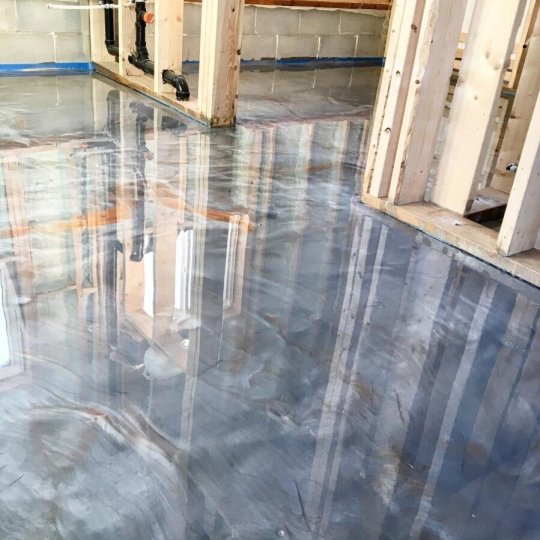
https://mtcustomconcrete.com/epoxy/
2 notes
·
View notes
Text
Epoxy Manufacturer: What Skills Help Them Excel
Have you been searching for an experienced epoxy manufacturer? Several epoxy manufacturers are working in the industry These professionals can provide you with a variety of adhesive options. But how will you decide on an epoxy manufacturer that can truly help your business? There are a few skills and qualities that makeepoxy manufacturers excel. Let’s discuss.
Flexibility
One of the most important skills that epoxy manufacturers focus on is flexibility. This helps them cater to the changing requirements of the clients. The industries and warehouses will keep changing from time to time. So, epoxy manufacturers also have to keep up with these evolving changes. This helps them cater to the requirements of theclients perfectly.
Problem-solving
There are various problems that warehouses are facing. So, epoxy manufacturers need to keep up with these problems. If they do not know what problems various industries are struggling with, they will not have an understanding of what products to offer. So, epoxy manufacturers must have a problem-solving attitude. Whenever they come to know about an issue, they should quickly get started with the research and development process. This will help them manufacture and deliver the products quickly according to the problems.
Reliability
Epoxy manufacturers should also stay reliable at all times. The epoxy adhesive for metal products that they offer is being used in various sensitive settings. So, these products should be highly reliable. If the products are not of the best quality, the clients may not feel confident when using them. This is especially true when it comes to adhesives. Therefore, manufacturers should also know how to be reliable at all times.
Communication
Manufacturers should not just focus on manufacturing but also on effectively communicating with clients and other stakeholders.When they communicate clearly with the clients, they will give them great feedbackwhich will help them grow.
Apart from this, various other skills help manufacturers succeed. The right manufacturer will have effective management that manages everything seamlessly. So, the entire manufacturing process will be completed without any issues.
About ITW Performance Polymers:
ITW Performance Polymers is one of the most reliable companies that help you with concrete epoxy adhesive.
To learn more about epoxy adhesives, visithttps://itwperformancepolymers.com/
Original Source: https://bit.ly/3Yz5vui
0 notes
Text
Top Questions to Ask Before Installing Epoxy Flooring in Raleigh
When considering installing epoxy flooring in Raleigh, asking the right questions is essential to ensure it meets your needs. Here are some key considerations:
Is Epoxy Flooring Suitable for My Space?
Epoxy flooring is versatile and ideal for garages, basements, and commercial spaces. Its durability and moisture resistance are particularly beneficial in Raleigh's humid climate. Consulting with professional epoxy floor installers near you can help determine the right fit for your area.
What Does the Installation Process Involve?
The installation includes surface preparation, repairing damage, applying a primer, and adding epoxy layers. Depending on the size of the area and environmental conditions, this process can take two to five days. Discussing the timeline with your chosen epoxy flooring contractors nearby is advisable.
How Should I Prepare My Floor?
A clean and even surface is crucial for a successful epoxy application. This involves thorough cleaning, surface grinding for better adhesion, and repairing any existing damage. In Raleigh, older homes might present challenges like uneven or damp concrete, which should be addressed before installation.
What Maintenance Does Epoxy Flooring Require?
One of the advantages of epoxy floors is their low maintenance. Regular sweeping or vacuuming and occasional mopping using mild soap and water will keep them in good condition. Avoid harsh cleaning tools that could scratch the surface.
How Durable Is Epoxy Flooring?
Epoxy floors are known for their strength and ability to withstand heavy loads, resist chemicals like oil and cleaning agents, and maintain their appearance even in high-traffic areas. For spaces with significant activity, epoxy flooring is a reliable option.
What Design Options Are Available?
Epoxy flooring offers a variety of design choices. You can select from different colors, add metallic finishes for a unique look, incorporate decorative flakes for texture, or customize patterns or logos. This flexibility allows you to match the floor to your personal style.
What Are the Costs Involved?
The cost of installing epoxy flooring depends on factors such as the size of the area, the condition of the existing floor, and any custom features you choose. While there is an initial investment, its longevity and low maintenance can make it cost-effective. Obtaining a detailed quote from your contractor will clarify the expenses involved.
By addressing these questions with a trusted epoxy garage floor installer, you can make an informed decision about installing epoxy flooring in your Raleigh home or business.
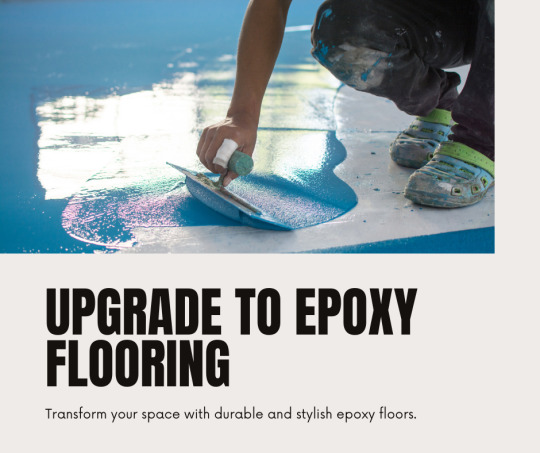
0 notes
Text
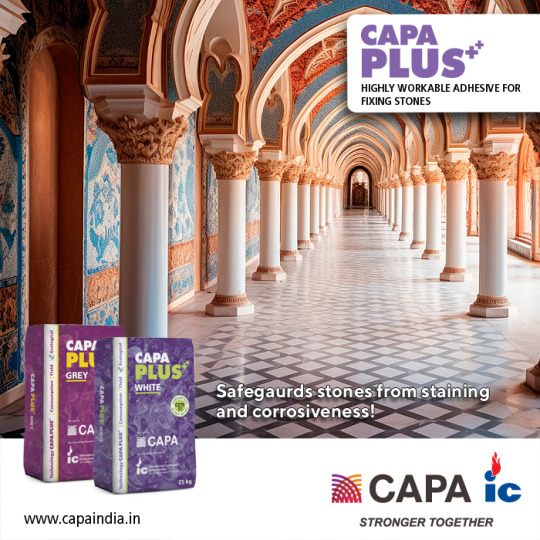
Embark on a journey of unmatched tiling excellence with CAPA PLUS, carefully crafted by industry-leading tile adhesive manufacturers in India. Versatile Brilliance: From vitrified tiles to large formats and natural stones, CAPA PLUS excels in diverse applications. Cement-Based Mastery: The result of cutting-edge expertise, CAPA PLUS stands as a testament to the pinnacle of tile adhesive innovation. Reliability Redefined: Trust in a bond that's not just strong but enduring. CAPA PLUS ensures your tiles stay in place, beautifully. Transform your spaces into showcases of excellence - Choose CAPA PLUS, where every adhesive layer tells a story of precision and perfection!
To know more about cement based tile adhesive and tile adhesive for large format tiles visit: https://capaindia.in/product/capa-plus/
#tile adhesive companies in india#top building materials companies in india#top tile adhesive brands in india#tile adhesive manufacturers#high strength flooring mortars#best tile adhesive in india#tile adhesives for fixing natural stones#block jointing mortar manufacturers in india#tile adhesives for vitrified tiles#floor repairs mortars in india#Top-tier epoxy grouts and resin adhesives#cement based tile adhesive#industrial grouts manufacturers in india#tile powder premium grouting solutions#epoxy resin adhesives manufacturers#epoxy grouts in india#best cement grout for tile installations#best grouting solutions for tiles#best concrete flooring solutions in India
0 notes
Text
Durable & Flawless: Epoxy Flooring Done Right
While DIY epoxy kits are available, achieving a seamless, long-lasting finish requires professional expertise. Local epoxy flooring contractors specialize in proper surface preparation, ensuring superior adhesion and a flawless result. By evaluating each space’s unique needs, experts recommend the ideal coating type and finish—whether a sleek, high-gloss look or a slip-resistant surface for added safety.
0 notes
Text

Is Costly Steel Corrosion Eating Away Your Infrastructure Investment?
Are you watching helplessly as your valuable steel infrastructure deteriorates in harsh industrial environments? Whether you’re managing a coastal facility battling relentless salt spray or overseeing critical equipment in aggressive chemical plants, the silent enemy of corrosion threatens to compromise your assets’ integrity and safety. The financial impact of corroding steel structures can be staggering, not to mention the operational disruptions and safety risks that come with it.
The Power of Zinc-Rich Protection
Cera Zinc ZR, a revolutionary two-component epoxy zinc-rich primer that’s changing the game in industrial corrosion protection. Unlike conventional primers, this advanced coating system provides active galvanic protection, essentially creating a sacrificial shield that protects your steel infrastructure at the molecular level.
Why Industry Leaders Choose Cera Zinc ZR:
Cera Zinc ZR are the preferred choice for corrosion protection due to their exceptional performance. They offer a combination of galvanic and barrier protection. Galvanic protection arises from the presence of zinc particles within the primer. Zinc acts as a sacrificial anode, meaning it corrodes preferentially to the underlying steel substrate. This electrochemical process effectively shields the steel from rust. Simultaneously, the primer itself forms a physical barrier, obstructing the ingress of moisture, oxygen, and other corrosive agents that would otherwise trigger rust formation. Furthermore, Cera Zinc ZR exhibit self-healing properties. When minor scratches or abrasions occur, the corrosion products of zinc can fill these imperfections, maintaining the protective barrier. Finally, these primers demonstrate excellent adhesion to steel surfaces, ensuring a robust and long-lasting coating system. This multifaceted approach makes zinc-rich primers highly effective in safeguarding steel structures from corrosion in diverse environments.
Versatile Protection Across Industries:
- Petrochemical and Refinery Operations: Shields against aggressive chemical exposure
- Coastal Infrastructure: Combats relentless salt spray and marine environments
- Hydroelectric Projects: Provides lasting protection in high-moisture conditions
- Industrial Processing Plants: Guards against chemical attack in fertilizer, pulp, and sugar industries
Application Excellence
Surface preparation is key to maximizing Cera Zinc ZR’s protective properties. The system achieves optimal results when applied to properly prepared surfaces meeting ISO 12944 Part 4 standards. Its user-friendly two-component system allows for straightforward application, making it an ideal choice for both new construction and maintenance projects.
Industry-Leading Performance:
- Superior galvanic protection
- Excellent adhesion properties
- Compatible with subsequent coating systems
- Compliant with BS 4652 Type 2 standards
- Extensive coverage capacity (5–6 Sqm/kg/coat)
Don’t let corrosion compromise your infrastructure investment. Choose Cera Zinc ZR for proven, long-lasting protection that industry professionals trust. Whether you’re protecting bridge structures, industrial equipment, or reinforced concrete, Cera Zinc ZR delivers the corrosion resistance you need to maintain asset integrity and reduce maintenance costs
For More Details:
Call us at: 98404 80307
Email: [email protected]
#cerachem #epoxyzincprimer #constructionchemical #constructionmaterial #epoxyprimer #epoxy #rustconverter #rustremover #rust #tileadhesive #repairmaterial #corrosionprotection #industrialcoating #steelcoating #admixture #waterproofingsystem #waterproofingsolution #construction
0 notes